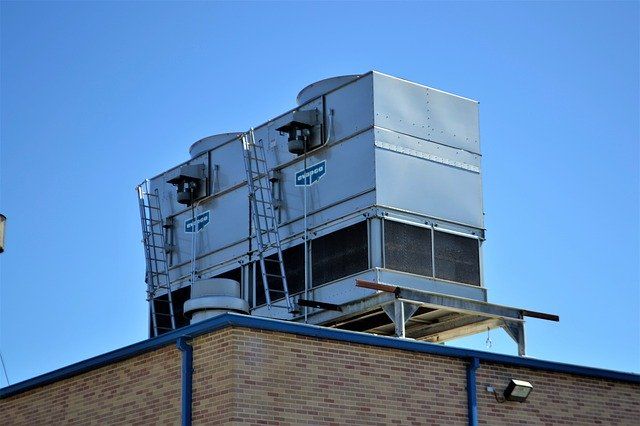How Does Architecture Respond To The Needs Of Energy-efficient HVAC Systems In Schools?

Are you tired of paying high energy bills every month? Whether you are building a new home or upgrading your existing one, installing an energy-efficient HVAC system can help you save money and reduce your carbon footprint. In this post, we will discuss 7 reasons why installing an energy-efficient HVAC system in your home is a smart investment.
1. Lower Energy Bills
One of the most significant benefits of an energy-efficient HVAC system is that it helps to lower your energy bills. According to the US Department of Energy, heating and cooling account for around 48% of the energy use in an average home. By upgrading to an energy-efficient system, you can save up to 20-30% on your energy bills every year.
2. Reduced Environmental Impact
Not only does an energy-efficient HVAC system help you save money, but it also reduces your carbon footprint. When you consume less energy, you are reducing the amount of greenhouse gases that are released into the environment. By installing an energy-efficient HVAC system, you are doing your part to help protect the planet for future generations.
3. Increased Comfort
Energy-efficient HVAC systems are designed to provide more consistent and even heating and cooling throughout your home. They are also equipped with features like programmable thermostats, which allow you to control the temperature in your home more accurately. This can help you to create a comfortable living space all year round.
4. Improved Indoor Air Quality
An energy-efficient HVAC system can help to improve the air quality in your home. These systems use advanced air filtration technology to remove dust, pollen, and other pollutants from your indoor air. This can be especially beneficial for people who suffer from allergies and other respiratory issues.
5. Increased Home Value
Not only does an energy-efficient HVAC system help you save money on your energy bills, but it can also increase the resale value of your home. Many homebuyers are looking for energy-efficient features when they are shopping for a new home. By upgrading to an energy-efficient HVAC system, you can make your home more attractive to potential buyers.
6. Increased Lifespan of Your HVAC System
Energy-efficient HVAC systems are designed to last longer than traditional HVAC systems. They are built with high-quality components that are designed to withstand the wear and tear of everyday use. This means that you can enjoy the benefits of your new HVAC system for many years to come.
7. Government Rebates and Tax Incentives
If you install a new energy-efficient HVAC system in your home, you may be eligible for government rebates and tax incentives. These incentives can help to offset the cost of your new system and reduce the payback period for your investment.
FAQ
What is an Energy-Efficient HVAC System?
An energy-efficient HVAC system is a heating and cooling system that is designed to use less energy than traditional systems. These systems are built with advanced technology that allows them to provide the same level of heating and cooling while using less power.
How Much Money Can I Save with an Energy-Efficient HVAC System?
The amount of money that you can save with an energy-efficient HVAC system depends on a variety of factors, including the size of your home, the climate in your area, and your usage patterns. However, on average, homeowners can save up to 20-30% on their energy bills every year by upgrading to an energy-efficient system.
How Do I Choose an Energy-Efficient HVAC System?
When choosing an energy-efficient HVAC system, there are several factors to consider. You should look for a system that is appropriately sized for your home, has a high SEER rating, and is equipped with features like programmable thermostats and advanced air filtration technology.
How Long Does an Energy-Efficient HVAC System Last?
An energy-efficient HVAC system can last anywhere from 10 to 20 years, depending on the quality of the system and how well it is maintained. Regular maintenance and servicing can help to extend the lifespan of your HVAC system and ensure that it is working efficiently.
What Are the Environmental Benefits of an Energy-Efficient HVAC System?
An energy-efficient HVAC system helps to reduce the amount of energy that is consumed in your home, which in turn reduces your carbon footprint. By consuming less energy, you are helping to reduce greenhouse gas emissions and combat climate change.
How Can I Qualify for Government Rebates and Tax Incentives?
To qualify for government rebates and tax incentives, you will need to meet certain criteria. In most cases, you will need to install an energy-efficient HVAC system that meets certain energy-efficiency standards. You can check with your local government or utility company to find out what programs are available in your area.
In conclusion, installing an energy-efficient HVAC system in your home is a wise investment that offers a range of benefits. From lower energy bills to increased home value, an energy-efficient HVAC system can help you save money and reduce your environmental impact. If you are considering upgrading your HVAC system, be sure to consult with a qualified HVAC professional to determine the best options for your home.




Post a Comment for "How Does Architecture Respond To The Needs Of Energy-efficient HVAC Systems In Schools?"